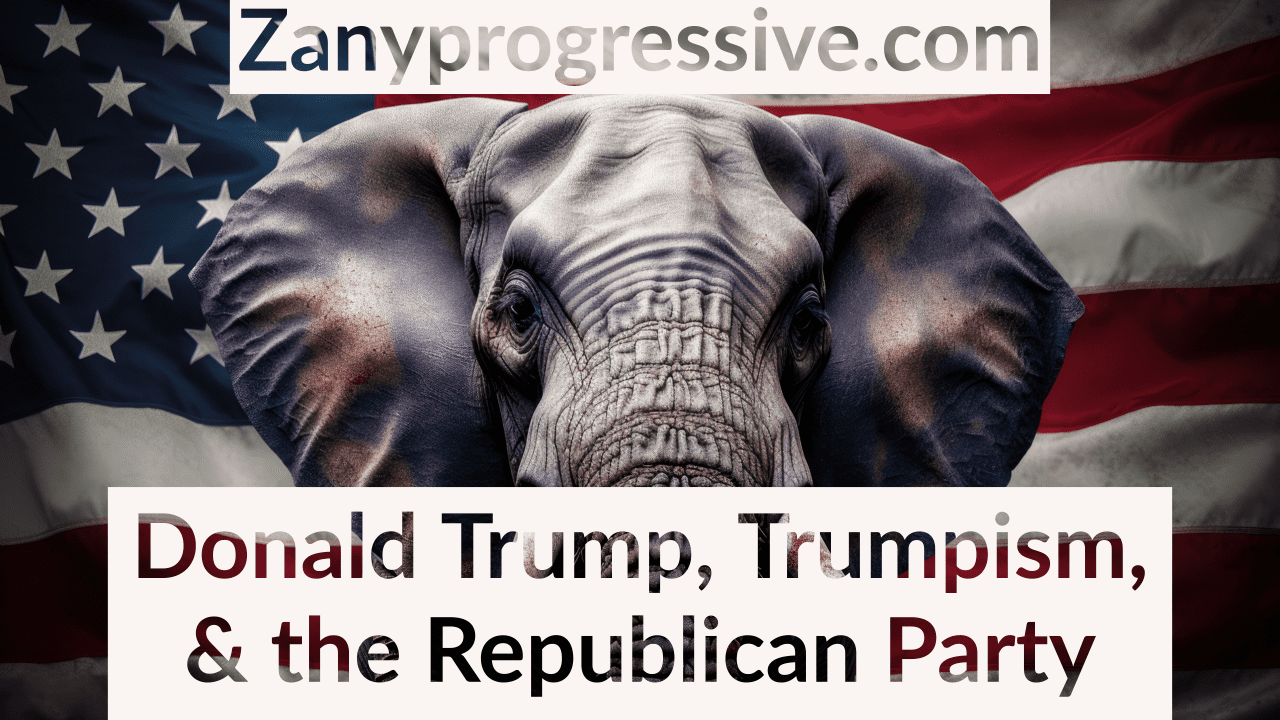With an assassination attempt on Donald Trump at a rally in Pennsylvania on July 13, 2024, the U.S. experienced another violent episode in its increasingly polarized politics. Former President Trump, who’s about to formally become the GOP nominee for president in the 2024 election, survived the assassination attempt when, initial reports said, a bullet grazed his ear. But one rally attendee was killed, more spectators were injured and the suspected gunman is also dead. The Conversation’s politics editor, Naomi Schalit, spoke with University of Massachusetts, Lowell, scholar Arie Perliger after the event. Perliger offered insight from his study of political violence and assassinations. Given the stark political polarization in the U.S., Perliger said, “it’s not a surprise that eventually people engage in violence.”
Zany: Before we get into the interview, I want to discuss some of the things people on social media have pointed out claiming they indicate that the shooting was staged. If you hate me and don’t care, skip ahead to the interview.
Let me preface this by saying that this was an assassination attempt on a former president. A man died shielding his family from the bullets and 2 other were hospitalized with serious injuries. It’s not a joke and political violence has no place in America. No matter how I feel about Donald Trump, I do not take any of this lightly.
After hearing about the incident, my friend kept me up to date on emerging details because I don’t have cable (who TF can afford it?). Prior to the identification of the shooter I had asked her if there was any information about them yet, adding, “PLEASE don’t let it be a Democrat or there will be a war!” I eventually found some live broadcasts on YouTube and when they showed the graphic displaying facts about the shooter I screamed at the TV, “Did you REALLY need to add that last part?!” I knew it wouldn’t matter that he was a registered Republican because all the right-wing would latch onto is that he donated $15 to a Progressive group in 2021. I 100% believe the media added that tidbit of info to their graphic specifically to add controversy and elicit anger from those on the right. $15 3 years ago means nothing in the present moment, am I right?
I opened my Twitter app and was shocked to see what people were saying. I posted clapping back at the people on X who immediately started claiming the Trump assassination attempt being reported was staged. Before many details had even been released! I had heard that someone in the crowd had died, others were injured, and a gunman was shot, so I didn’t like that people on the Left were acting like Q’Anon.
I learned some things about the assassination attempt of Trump that perhaps are influencing these people.
1) A reporter was live on the scene when someone pulled over to talk to him because they were at the rally and wanted to say something. A man in a MAGA hat stated that he and his daughter had been to a rally in PA before that had been held near an airport. He remembers how he and his daughter were in awe of the fact that there was a sniper on the roof of every airport hangar and every building nearby. He brought it up because it had left such an impact on them that they took notice right away that there were no snipers on the rooftops this time. Especially considering it was taking place out in the open.
2) A man from the crowd who was interviewed by BBC said he and his friend witnessed the shooter climbing up the building carrying a rifle and they tried alerting police who the interviewee said “looked confused. So they tried alerting the Secret Service snipers by yelling at them and pointing toward the man, but they didn’t appear to understand. There is also video taken by people in the crowd showing the shooter crawling on the roof to get into place.
3) The Secret Service, as reported by a member of the Oath Keepers, was in on the planning of January 6th, 2021.
4) A Boston Globe reporter who was at the rally mentioned that he had noticed the building when Secret Service snipers had set up tabletop rifles (or whatever the correct terminology for those are) pointing toward that building prior to the start of the rally. He brushed it off as them noticing a weak security spot and preparing in advance. That being said, wouldn’t they have seen the shooter climbing the building or being on the rooftop before he began firing? Or if they were aware of that building, why didn’t they understand the reason for the men shouting and pointing toward it?
5) Trump is a sociopath without compassion, empathy, or guilt. It would not bother him if his supporters were injured or killed during an assassination attempt just so he could advance his campaign or cause a civil war (he yelled “fight!” several times as he was escorted out by the Secret Service?
Finally, 6) The Leader of Hungary and Trump’s BFF, Viktor Orbán, recently visited Trump again in Mar-a-Lago just after he had arrived in Russia, unannounced (publicly), and met with Putin, the king of false flags. Putin is well-known for his “false flags”used to start wars or unite his country around a certain purpose. Isn’t there a chance they colluded on a Trump assassination attempt to strengthen his chances of winning? Republican politicians immediately took to social media blaming Biden for the assassination attempt on Trump as if on cue.
So are all of those things simply coincidental? Put together it looks damning, but still does not indicate that the assassination attempt of Trump was staged. I don’t trust conman Trump and his group of autocrat buddies one bit. Tell me what you think in the comments.
And now back to the interview with a security expert about the Donald Trump assassination attempt yesterday, Saturday 7/13/2024, during a rally in Butler County, Pennsylvania.

Interview about the Trump Assassination Attempt
Schalit: When you heard the news about the assassination attempt on Donald Trump, what was the first thing you thought?
Perliger: The first thing that I thought about is that we were basically one inch from a potential civil war. I think that if, indeed, Donald Trump would have suffered fatal injuries today, the level of violence that we witnessed so far will be nothing in comparison to what would have happened in the next couple of months. I think that would have unleashed a new level of anger, frustration, resentment, hostility that we haven’t seen for many, many years in the U.S.
This assassination attempt on Trump, at least at this early stage, may validate a strong sense among many Trump supporters and many people on the far right that they are being delegitimized, that they are on the defensive and that there are efforts to basically prevent them from competing in the political process and prevent Trump from returning to the White House.
What we’ve just seen, for many of the people on the far right, fits very well into a narrative that they’ve already been constructing and disseminating for the last few months.
Political assassination attempts don’t aim only to kill someone. They have a larger goal, don’t they?
In many ways, assassination attempts bypass the long process of trying to downgrade and defeat political opponents, when there is a sense that even a long political struggle will not be sufficient. Many perpetrators see assassinations as a tool that will allow them to achieve their political objectives in a very quick, very effective way that doesn’t demand a lot of resources or a lot of organization. If we are trying to connect it to what we’ve seen today, I think that many people see Trump as a unicorn, as a unique entity, who in many ways really consumed the entire conservative movement. So by removing him, there’s a sense that that will or may solve the problem.
I think that the conservative movement changed dramatically since 2016, when Trump was first elected, and a lot of the characteristics of Trumpism are actually now fairly popular in different parts of the conservative movement. So even if Trump will decide to retire at some point, I don’t think that Trumpism – as a set of populist ideas – will disappear from the GOP. But I can definitely understand why people who see that as a threat will feel that removing Trump can solve all the problems.

In a study of the causes and impacts of political assassination, you wrote that unless electoral processes can address “the most intense political grievances … electoral competition has the potential to instigate further violence, including the assassinations of political figures.” Is that what you saw in this attempted assassination of Trump?
Democracy cannot work if the different parties, the different movements, are not willing to work together on some issues. Democracy works when multiple groups are willing to reach some kind of consensus through negotiations, to collaborate and to cooperate.
What we’ve seen in the last 17 years, basically since 2008 and the rise of the Tea Party movement, is that there’s increasing polarization in the U.S. And the worst part of this polarization is that the American political system became dysfunctional in the sense that we are forcing out any politicians and policymakers who are interested in collaboration with the other side. That’s one thing. Second, people delegitimize leaders who are willing to collaborate with the other side, hence, presenting them as individuals who betrayed their values and political party.
The third part is that people are delegitimizing their political rivals. They transform a political disagreement into a war in which there is no space for working together to address the challenges they agree are facing the nation.
When you combine those three dynamics, you create basically a dysfunctional system where both sides are convinced that it’s a zero-sum game, that it’s the end of the country. It’s the end of democracy if the other side wins.
If both sides are hammering into people again and again that losing an election is the end of the world, then it’s not a surprise that eventually people are willing to take the law into their hands and to engage in violence.

Arie Perliger does not work for, consult, own shares in or receive funding from any company or organization that would benefit from this article, and has disclosed no relevant affiliations beyond their academic appointment.
The article featured in this post is from The Conversation and republished here under a Creative Commons License. Read the original article.









